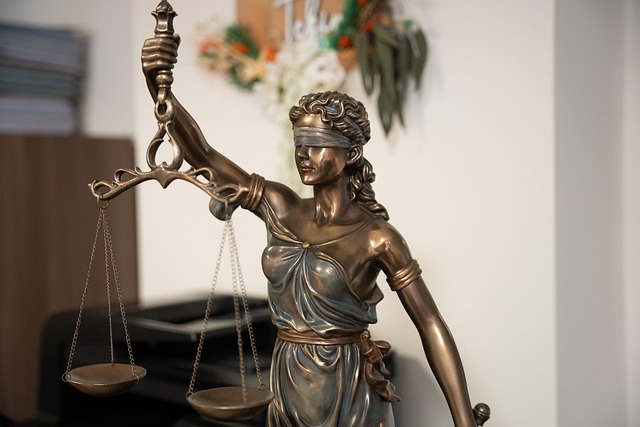The impact of jury demographics on verdicts in securities class actions is crucial for achieving fair adjudication and collective redress. Diverse juries bring varied life experiences to complex financial cases, enhancing evidence evaluation and decision-making. Racial and gender biases can influence interpretations and outcomes, with diversity linked to more balanced results. Mitigating unconscious bias through strategic jury selection, inclusive discussions, and bias awareness training ensures equitable justice regardless of demographics.
Securities class actions, a powerful legal tool for investors, have evolved into complex battles with significant financial consequences. This article delves into the intricacies of securities class actions from a legal perspective, exploring key factors shaping outcomes. We dissect the role of jury diversity, particularly examining racial and gender biases that may impact verdicts in these high-stakes cases. Additionally, we present strategies to mitigate demographic influences, emphasizing their crucial role in ensuring fair and just resolutions.
- Understanding Securities Class Actions: A Legal Perspective
- The Role of Jury Diversity in Class Action Trials
- Impact of Jury Demographics: Racial and Gender Biases Explored
- Strategies for Mitigating Demographic Influences on Verdicts
Understanding Securities Class Actions: A Legal Perspective

Securities class actions are a crucial legal mechanism that empowers investors who have suffered losses due to corporate misconduct or fraud to seek collective redress. These high-stakes cases often involve complex financial schemes and can have far-reaching implications for both individuals and institutions across the country. Understanding securities class actions requires delving into their historical evolution, procedural nuances, and the impact of various factors on outcomes, including the demographics of juries.
The impact of jury demographics on verdicts in securities class actions is a topic of significant interest. Juries, composed of citizens from diverse backgrounds, bring unique perspectives that can influence the interpretation of evidence and legal arguments. In cases involving white-collar and economic crimes, where the stakes are high, understanding how jury diversity affects outcomes becomes essential. This consideration underscores the importance of selecting juries that reflect the community at large, ensuring fair and unbiased adjudication in these complex legal battles.
The Role of Jury Diversity in Class Action Trials

In modern legal landscapes, particularly in high-stakes jury trials and class action cases, achieving extraordinary results hinges on more than just robust legal arguments. The composition and diversity of juries play a pivotal role in shaping verdicts, with recent studies indicating that demographic factors can significantly influence decisions. The impact of jury demographics on outcomes is profound, especially in securities disputes where the stakes are high and the complexities deep.
Understanding this dynamic is crucial for both plaintiffs and defendants alike. Jurors bring their unique life experiences, cultural backgrounds, and perspectives to the courtroom. In diverse juries, these differing viewpoints can foster a more comprehensive evaluation of evidence, leading to well-rounded decisions. This is particularly relevant in securities class actions, where cases often turn on nuanced interpretations of facts and legal principles. By recognizing and leveraging jury diversity, legal teams can navigate the intricate dynamics at play, ultimately enhancing their chances of achieving desirable outcomes in these complex high-stakes cases.
Impact of Jury Demographics: Racial and Gender Biases Explored

The composition of juries has long been a subject of interest, particularly due to its potential impact on the outcome of securities class action cases. The impact of jury demographics on verdicts is significant, as it can influence the interpretation and application of laws and evidence presented in court. Research suggests that racial and gender biases among jurors can affect how they perceive and decide upon complex legal matters, including those involving corporate misconduct and financial losses.
Studies have shown that diversity within juries can lead to more balanced and fair outcomes, reflecting the diverse perspectives and experiences of the community at large. However, when biases are present, they can result in decisions that avoid indictment or fail to achieve extraordinary results for plaintiffs. Addressing these biases is crucial, as it ensures that justice is served equitably, especially in cases where businesses face legal scrutiny for their actions.
Strategies for Mitigating Demographic Influences on Verdicts

The impact of jury demographics on verdicts is a complex issue that has garnered significant attention in recent years. While a diverse jury brings valuable perspectives to legal proceedings, demographic factors can inadvertently influence the decision-making process. Strategies for mitigating these influences involve ensuring a balanced and representative panel. This includes careful selection during jury pooling, addressing potential biases through thoughtful questioning during voir dire, and promoting inclusive discussions throughout the trial. By implementing these practices, attorneys can help level the playing field for their clients, regardless of the respective business or industry at hand.
Moreover, recognizing and accounting for unconscious biases is paramount. Training judges, lawyers, and jurors on implicit associations and decision-making heuristics can foster a more objective environment. Encouraging open dialogue that values differing viewpoints and promoting cultural sensitivity further reduces the impact of demographic influences. These measures are crucial for maintaining fairness across the country, ensuring that justice is served without regard to race, gender, or socioeconomic status.
Securities class actions, while powerful tools for holding corporations accountable, face challenges in ensuring fair and unbiased jury decisions. The article has explored critical aspects, such as understanding these legal cases from a broader perspective and examining the role of diversity within juries. By delving into the impact of jury demographics, particularly racial and gender biases, it’s evident that mitigating these influences is paramount for achieving just outcomes. Implementing strategies to promote diverse perspectives and reduce inherent biases can significantly enhance the integrity of securities class action trials, ultimately ensuring that all parties involved receive a fair hearing.






